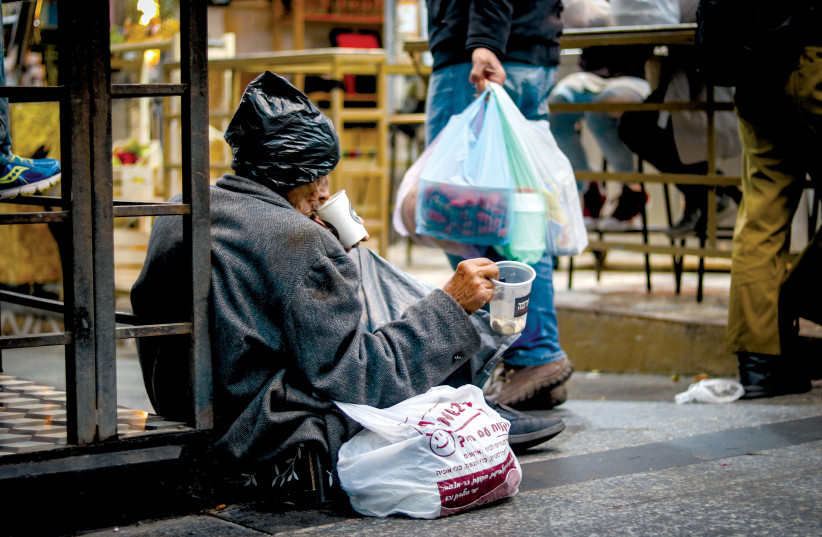Nearly 30% of Israel's population lives in poverty as of 2024, according to a report by non-profit organization LATET released Monday.
There are 678,200 households in poverty, 2,756,000 poor people, and 1,240,000 poor children, the report found.
Some 10.1% of families live in “severe nutritional insecurity,” it added.
The report added that some 325,700 families and 1,180,200 people (including 627,600 children) suffered from serious food insecurity, and another 354,800 families and 990,600 people suffered from food insecurity.
The report also touched on the impacts of poverty on Israelis, saying that those who received aid from the organization and its partners reported low personal resilience at twice the rate of the general population.
Further, the average monthly expenses for households supported by the organization were around 1.7 times their average monthly income.

Among aid recipients, 44.6% also reported that the Israel-Hamas War impacted their children’s academic performance at much higher rates (3.2 times higher) than in the general population.
The emotional state of children
The emotional state of children of aid recipients was also more significantly impacted by the war, the study said, with nearly 47% of recipients’ children reporting that the war had a significant impact, compared to 14.5% of children in the general population.
Some 85.4% of families who received aid reported that they could not afford tutoring, 84.7% could not afford extracurriculars, 71% could not keep up with school payments, and 51.4% could not afford frameworks for their infants and toddlers.
Some 65% of aid recipients told Latet that their financial situation has worsened over the past year. Over 70% said they could not afford medicine and did not purchase it or receive necessary medical treatment.
Nearly 70% of those who received aid forfeited fixing serious problems in their apartments because of economic constraints.
Over 22% of those who received aid reported that they were disconnected from electricity, and another nearly 27% reported that they were not disconnected but received a warning letter.
According to the report, “The consequences of the complex economic situation [caused by the war] disproportionately affect the population. Low-resource households, already collapsing under the economic burden, are the first to suffer from economic fluctuations.
“Despite the extent of assistance provided to those in need, the fact that many still require aid for food and basic essential needs and face significant economic deficits highlights the depth of the distress and the need for more comprehensive solutions,” it said.
The authors highlighted that the study was “intended to serve as a tool to pressure decision-makers in the government and the Knesset to fulfill their responsibility for the welfare of the country’s residents and to act systematically and resolutely to reduce poverty and social gaps.”
“The economic measures planned for the 2025 budget – raising the VAT, increasing National Insurance contributions, freezing tax brackets, and child allowances – burden everyone but are expected to deepen the hardship, particularly among weaker populations,” they added.
“In this period of national crisis, as security and economic challenges intensify, the report serves as a critical reminder that the poor must not be forgotten.
“It calls on the government... to allocate appropriate resources, formulate a comprehensive action plan, and establish a dedicated national body to combat poverty,” they wrote.
